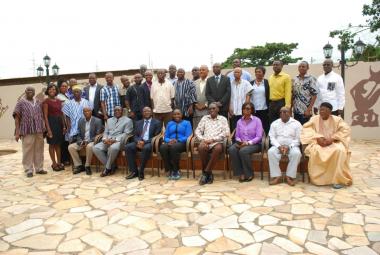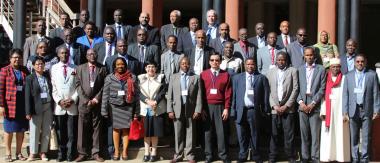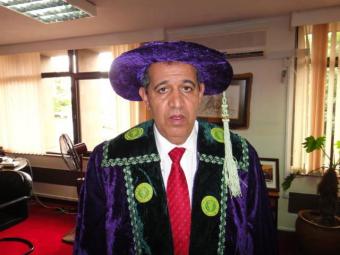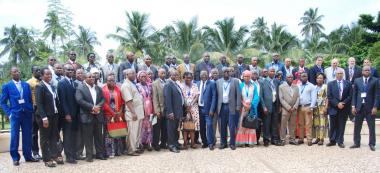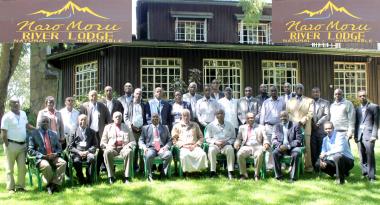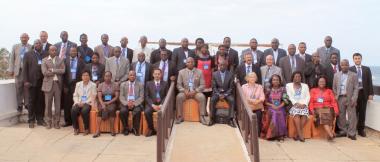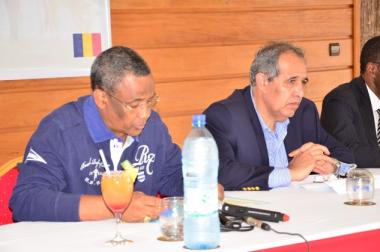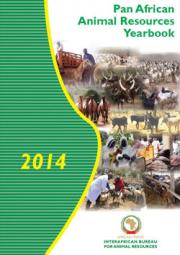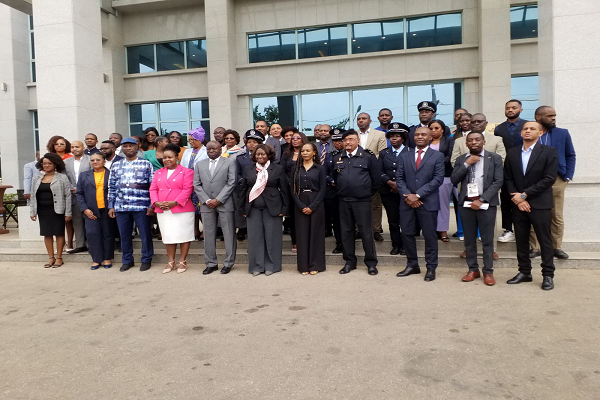
AU-IBAR, with support from the SIDA project and the Government of Norway, is assisting select African Union Member States in developing and implementing National Blue Economy Strategies to ensure sustainable use of marine resources. From June 20-22, 2024, Luanda, ANGOLA hosted a pivotal strategy workshop where stakeholders convened to chart a course for leveraging Angola's blue economy potential. Organized by AU-IBAR in collaboration with the Angolan government, the workshop marked a significant stride in aligning with the Africa Blue Economy Strategy (ABES).
During the workshop’s inaugural session chaired by Mr. Joelson Goncalves, AU-IBAR's Mrs. Hellen Guebama, representing Dr. Huyam Salih, underscored Angola and AU-IBAR’s joint effort in crafting a National Blue Economy Strategy. She stressed the importance of aligning national plans with the continent-wide goals outlined in ABES, emphasizing collaboration with countries such as Norway.
Ms. Katrina Hilundwa, representing SADC, highlighted the workshop's role in fostering regional collaboration and coherence with ongoing initiatives. She emphasized the necessity for capacity building, investment opportunities, and strategic policies to effectively manage oceanic and blue resources for economic development.
Her Excellency, Minister Dra. Carmen Sacramento Neto dos Santos of the Ministry of Fisheries and Marine Resources, stressed the strategic imperatives of managing oceanic resources for sustainable economic growth. She praised AU-IBAR's support in fostering growth within Angola's fishing sector under the blue economy framework. She emphasized the mobilization of financial and technical resources to promote Blue Economy implementation, crucial for economic diversification and robust environmental stewardship amid climate challenges.
Guided by AU-IBAR's Mr. Obinna Anozie, the workshop aimed to gather stakeholder feedback to finalize Angola’s National Blue Economy Plan. Key objectives included establishing a Blue Governance framework, enhancing awareness, building capacity, and prioritizing ABES-aligned initiatives.
The workshop, attended by thirty participants from various Angolan ministries, institutes, and organizations, underscored a collective commitment to formulating a comprehensive and inclusive blue economy strategy for Angola.
Technical sessions at the workshop extensively covered sectors such as fishing, aquaculture, tourism, and energy within the blue economy. Speakers like Dr. Patrick Karani provided insights into ABES implementation frameworks and governance mechanisms, offering valuable guidance for policy formulation and capacity building.
Participants discussed crucial themes including gender inclusivity, sustainable resource management, and addressing environmental challenges such as pollution and climate change. Recommendations included ensuring gender considerations across all facets of the blue economy and making knowledge products accessible in multiple languages to facilitate broader regional engagement.
The workshop concluded with the endorsement of actionable steps following productive discussions and intensive working group sessions. Among the key follow-ups is the dissemination of the National Blue Economy Plan for broader review, input, and eventual implementation.
The Angola National Blue Economy Workshop underscored the importance of collaborative frameworks and strategic partnerships in achieving sustainable economic diversification objectives. It reaffirmed Angola’s steadfast commitment to maximizing the blue economy’s potential, ensuring inclusive growth, and environmental sustainability. Policymakers and stakeholders can leverage workshop findings to navigate Angola’s path towards future prosperity, optimizing maritime resources for the benefit of its populace and the broader African continent.

